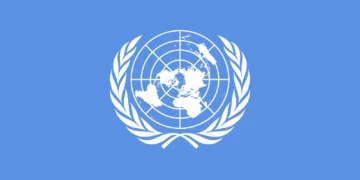Palm oil importation has become a major concern for Nigeria, a country blessed with abundant agricultural resources, good weather, arable land, and soil. Nigeria is reported to be spending an alarming $600 million on palm oil imports annually.
This clearly indicates that there is something fundamentally wrong with the nation’s agricultural policy that needs to be urgently looked into by the government at all levels.
Before the misfortune of hydrocarbon, palm oil industry was one of Nigeria’s most lucrative sub sectors in the larger agricultural sector. It was a significant source of income for many farmers and provided employment opportunities for a large number of people. In spite of these inherent benefits, the country abandoned the sector and today relies heavily on palm oil imports to meet its domestic demand. This is not only unacceptable but also unsustainable.
The National Palm Produce Association of Nigeria (NPPAN) recently raised the alarm about the toll of palm oil imports on the economy, suggesting that the country could save $600m annually by investing in palm oil production. It believes that Nigeria’s current reliance on palm oil imports has created a substantial financial drain that could otherwise be mitigated by revitalising the domestic palm oil sector.
In pre-Independence Nigeria palm oil production was a thriving business. The country was a global market leader in the 1960s with over 60 per cent of the world’s palm oil supply. However, the country’s production capacity dwindled due to successive governments’ neglect and lack of strategic investment in the sector.
Nigeria currently consumes approximately three million metric tons of palm oil annually, producing less than half of this demand domestically. Therefore, a comprehensive strategy to revitalise the sector is needed. In fact, experts have said that a comprehensive strategic plan can help develop 250,000 hectares of oil palm plantations annually, which could bridge the deficit in production within four years.
Currently, the country occupies the fifth position in the league of palm oil-producing countries after Indonesia, Malaysia, Thailand and Colombia. Nigeria may even lose its position to smaller countries that are investing heavily in the sector. Indonesia occupies the first position, producing 50 million metric tons, Malaysia second with 19 million metric tons, Thailand 3.28 million and Colombia 1.9 million metric tons.
The Federal Ministry of Agriculture and Food Security must immediately prioritise and support local palm oil producers. With the necessary government assistance, including policy frameworks and financial incentives, Nigeria has the potential to not only meet its domestic demand but also become a net exporter of palm oil. This will create economic opportunities, reduce import dependence and foster agricultural innovation and employment across the country.
It is on record that the NPPAN already has a National Oil Palm Strategy Development Plan in place. The federal government can do well to adopt that plan for everyone’s overall benefit. All that the producers need are inputs. The government does not need to give and develop land for them; they need seedlings, fertilisers, logistics, and implements to close the gap.
The government must take decisive action to improve the situation and curb this import dependency trend. One way to achieve this is by investing in the local palm oil industry. This will help to increase production and reduce the need for imports. The government can also provide incentives such as tax breaks, subsidies, and grants to encourage more farmers to invest in the sector. This will not only create more employment opportunities but also boost the economy.
Another way to improve the situation is by promoting research and development in the palm oil industry. This will help to identify new and improved varieties of palm oil seedlings that are more resistant to diseases, pests, and environmental factors. It will also help to improve the yield and quality of palm oil produced in the country. This will make locally-produced palm oil more competitive in the international market, thereby reducing the need for imports.
Nigeria’s heavy reliance on palm oil imports clearly indicates a need for urgent government action. Investing in the local palm oil industry, promoting research and development, and encouraging the use of alternative oils are ways the government can improve the situation and save the country a huge amount of money spent on oil imports annually. The time to act is now.





